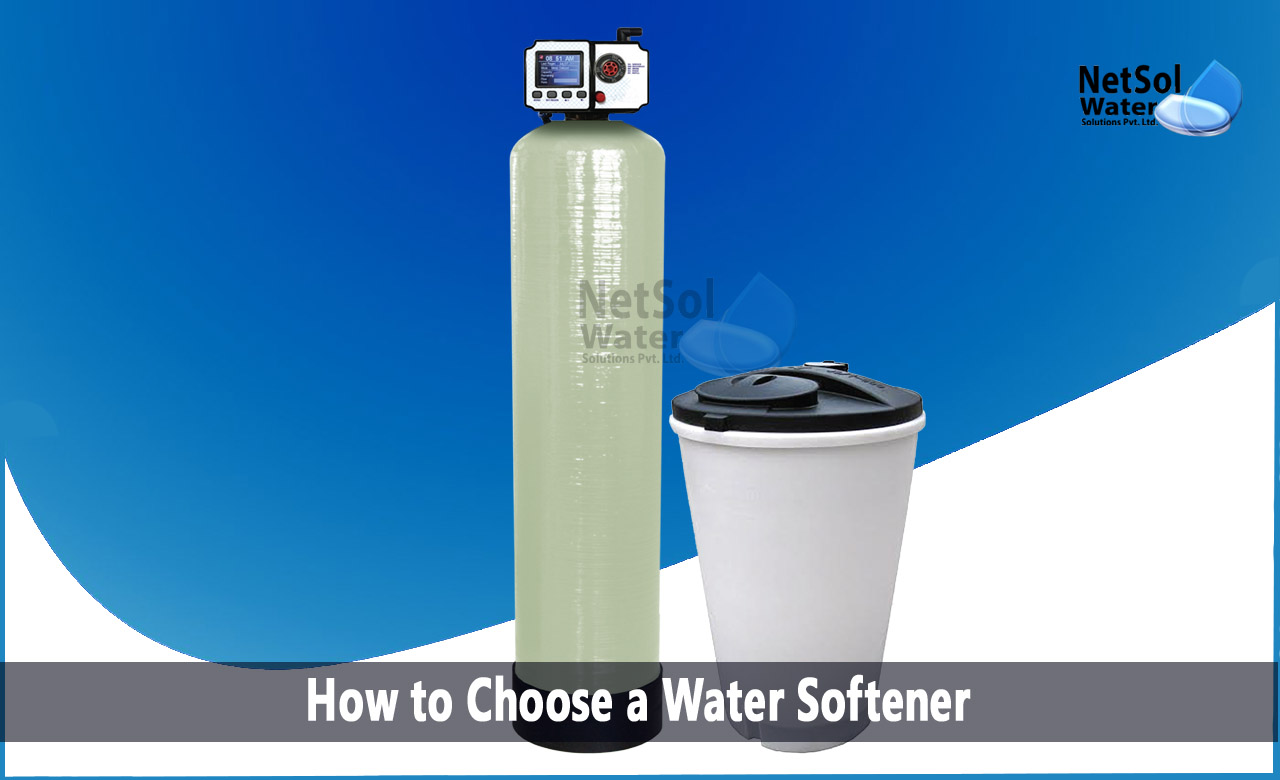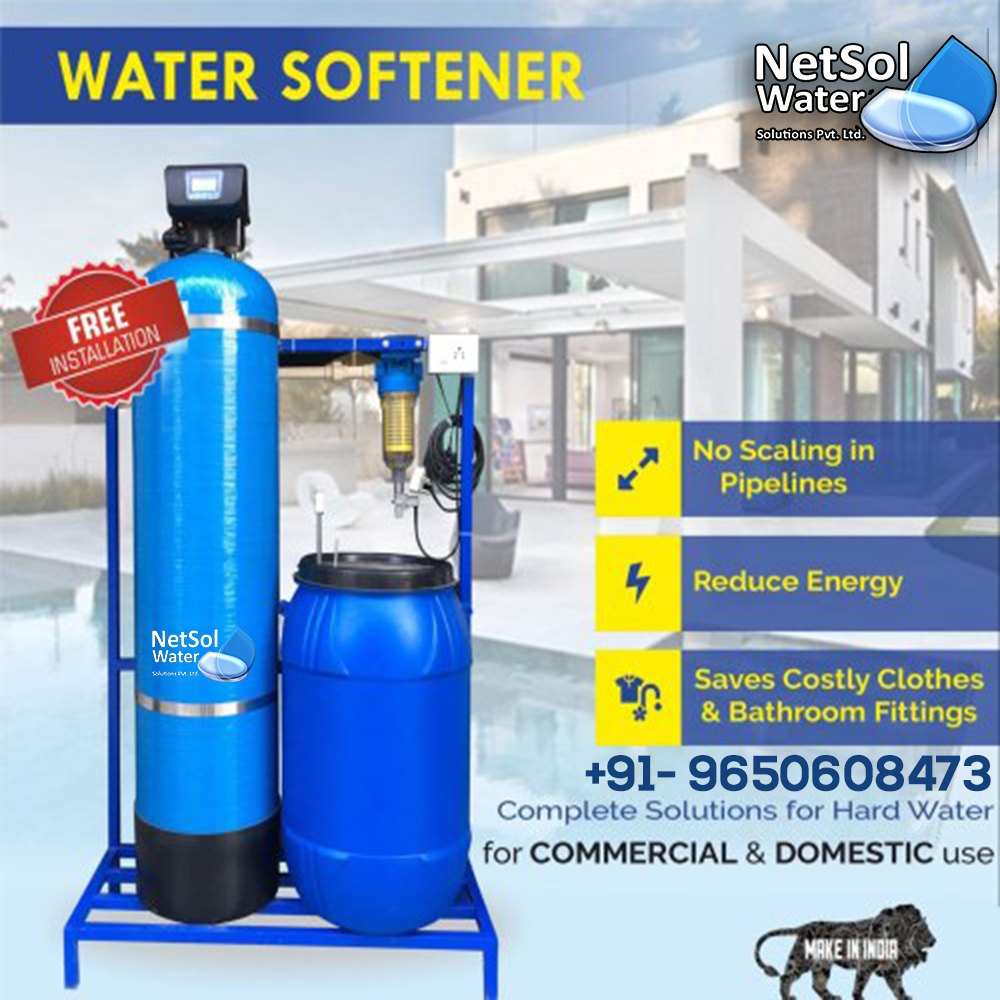Selecting the best water softener for your home is trickier than you might believe! There are important aspects and considerations to take into account. We'll cover all you need to know, including: What makes hard water harmful? Why is a water softener necessary? How to choose a water softener, and eventually, what expenses you will incur?
Why is hard water dangerous?
We must first examine the causes of the harm caused by hard water. In the end, it can cause quite a bit of disruption to routine household chores, and cause you a lot of problems.
This comprises:
· Appliances and the heating system are damaged with their efficiency,
· Being challenging to clean,
· Causing issues for those who suffer from skin ailments like eczema,
· Making cleaned clothing more rugged.
By removing dangerous minerals from the water before they can enter the taps, an ion exchange, salt-based water softener combats the issue of lime-scale. In order to ensure that all areas of the house or a commercial property benefit from softened water, a water softener is attached to the plumbing system, typically near to the incoming mains.
What is removed by a water softener?
The calcium (Ca) and magnesium (Mg) ions (lime-scale) present in hard water are removed, by an ion exchange water softener and exchanged for non-toxic sodium (Na) ions. The resin beads are cleaned in a brine solution during a procedure known as regeneration. They can produce more softened water as a result.
A very less amount of extra salt is introduced to the water supply during the softening process, although, this sodium is typically safe to consume. If you're worried, using a water filter will lessen the salt content of the water and enhance its flavour.
How to choose a water softener?
The exchange principle is the same for all ion-exchange water softeners. Over time, research and development have significantly improved systems, leading firms like Netsol Water to:
1- The materials' tenacity and safety,
2- A more effective control mechanism, ensuring that water flows uniformly across the resin bed, ensuring that the exchange process has the best possible water contact duration, and the effectiveness and cost-effectiveness of the regeneration process,
3- A tank with resin beads, a brine tank (where the salt is kept), and a controller for the water softener's functioning make up modern water softeners.
4- Every day or every week, a scheduled controlled water softener will go through the regeneration process.
5- If the regeneration process is not completed quickly enough, only hard water will be accessible.
Water softeners that are volume controlled or metered measure the volume of water, passing through them and replenish the resin beads when they run out.
Meter controlled water-softeners
A meter-controlled water softener needs to know the hardness of the water, and how much water has been consumed in order to determine when the resin has run out. As a result, a water softener calibrated to the precise hardness of the water, will be more effective than one using a pre-set hardness range.
Softener types
The following are the primary variations between the two types of softeners:
1- Compared to twin tanks, single tanks provide soft water that is available when needed.
2- Electronic single tank technology increases effectiveness V twin tank without electricity.
3- Compared to a twin tank complex design, a single tank is a simpler design with fewer component parts.
4- One tank for consistent water flow.
5- When in regeneration, the water flow in a v-twin tank may vary.
6- Twin tank softeners are made to employ block salt, while single tank softeners use tablets or granular salt.
7- The twin tank softener is more sophisticated but has a small design, because it has two low softening capacity tanks.
On-demand versus constant softening
Although, we don't use water continuously in our houses, we still need to know that softened water will be accessible when we need it.
Only hard water is accessible during regeneration of a single tank softener. Contrarily, twin tank water softeners contain two resin tanks, one of which will shut down when it needs to regenerate, ensuring that soft water is available all the time.
As a result, you must make sure the water softener provides soft water upon request. This means that the single tank softener will regenerate when water is not being used, which is typically early in the morning. Its technology will ensure that there is always enough softening capacity during the day for your needs, so soft water will always be available, but without the complexity of a twin tank softener.
Additionally, due of the dual tank's poor softening capacity, the softener will need to regenerate more frequently and work harder. For a family, a twin tank softener can be expensive to operate, and its repeated regenerations might interfere with water flow and worsen wear and tear.
Always ask yourself these questions before choosing your water softener:
Q1: Is the layout sufficient to guarantee that the water in your home will be completely softened?
Q2: What is the system's capacity for water softening?
Q3: How much water and salt are utilized in the regeneration process?
Q4: Is there any post-purchase support offered?
Q5: How much money do you put in?
Q6: What is covered by the warranty?
Q7: Can water softeners be installed anywhere?
A water softener with good design can last for well over ten years. In reality, finding folks with high-quality water softeners is pretty typical. You can get advice from this and other purchase guides for water softeners, or a reliable water softener specialist.
Operating costs are based on the softening capability and type of salt the softener uses.
The salt and water used in the regeneration process are a constant expense. Different types and quantities of salt are used for regeneration, by various types of water softeners.
Type of salt
Block salt has fewer suppliers and is typically twice as expensive, while tablet and granular salts are readily accessible from a wide range of retailers.
Many people will consider the water softener's physical size, but its water softening capacity—the volume of soft water produced between regenerations—really determines whether or not it is suitable for a home.
Softener size
A small water softener won't be able to give the necessary contact time for the ion exchange to function correctly in a residence, which requires high flow rates, and the water won't be properly softened.
The amount of resin that can be produced in the softener and the hardness of the water in your location, determines how much soft water can be produced. Reputable manufacturers will display how much soft water their water softener can produce.
The finest water softener for you will depend on your water usage (a general rule is 135 litres per person per day)
A water softener with a modest softening capacity would be adequate for a household of two to three people, but one with a softening capacity of less than that would be expensive to operate, and would have to work harder, reducing its lifespan and increasing wear and tear.
Water flow in the home and water softeners
Homeowners also worry about the water flow in their homes being negatively impacted by their water softener. In most homes, high flow rates are frequently not necessary. Higher flow rates are a factor for larger properties with direct feed systems.
A softener made specifically for larger pipes is required for larger homes with plumbing that is larger than 22 mm. The water flow needed for a larger home won't be produced by a regular water softener, which comes with larger hoses, and the ion exchange process could be impaired since there isn't enough contact time, with the resin beads.
Conclusion
In conclusion, picking a water softener for your house can be challenging. Fortunately for you, we are always willing to assist if you have any questions.
Water Softening Plant manufacturer
When selecting a water softener for your industry, we are aware that there are many different stages of study and data collection. Whether you are simply browsing for information or have a specific specification that you require a quote for, neither situation matters!




